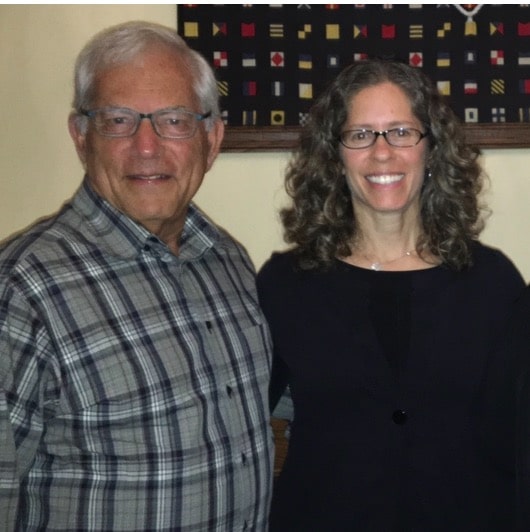Taking After My Dad

At the age of 47, I learned I have the BRCA1 genetic mutation. It was a complete fluke that I found out about my high-risk status. Even though my father’s family history of cancer includes breast (his mom), prostate (his dad), and melanoma (his aunt), it wasn’t until he attended a health fair that all the pieces came together. With a quick cheek swab, he was tested for multiple genetic mutations and learned that he’s BRCA1 positive. He encouraged my brother and me to get tested.
When I learned that I’m BRCA1 positive, I spent each day feeling like a ticking time bomb. The likelihood of developing breast cancer during my lifetime is over 80% – exponentially higher than the average 12% risk of the general population.
I’ve always been proud of my Ashkenazi Jewish ancestry, but now I grappled with the fact that my genes also likely contributed to my BRCA status. One in 40 Ashkenazi Jews – men and women – carries a BRCA gene mutation, more than 10x the rate of the general population.
This discovery sent my life into a tailspin of doctor appointments, Internet research, and tearful conversations with friends who are also BRCA positive or who have had breast cancer. I wanted to learn everything I could.
One of the best things I did was reach out to Sharsheret. I was connected with one of Sharsheret’s social workers, who has provided incredible support and educational resources. I find strength knowing that Sharsheret is here for me, not only for information, but also with a caring professional who keeps in contact with me regularly and genuinely cares.
Soon after learning about my BRCA status, I scheduled a salpingo-oophorectomy to remove my ovaries and fallopian tubes, which might also decrease my breast cancer risk. The other surgery my doctor recommends is a prophylactic bilateral mastectomy to bring my breast cancer risk down to almost zero. I’m planning to have this surgery before my 50th birthday next year.
It’s human nature to look at our ancestors and wonder which relative we look like and where our personality traits come from. However, it’s important not to overlook the genetic component. I got my dad’s smile, and I also unfortunately got the BRCA1 mutation. The positive side of this is that knowledge is power. My relatives may have unnecessarily passed away from cancer, but I can take the necessary steps to minimize my cancer risk. Thank you to the Sharsheret community for being here for me, and allowing me to use my story to educate others about this important topic!
